| Tournament details | |
|---|---|
| Dates | 24 May 1964 – 29 December 1965 |
| Teams | 74 (from 5 confederations) |
| Tournament statistics | |
| Matches played | 127 |
| Goals scored | 393 (3.09 per match) |
| Top scorer(s) | |
The 1966 FIFA World Cup qualification was a series of tournaments organised by the five FIFA confederations. The 1966 FIFA World Cup featured 16 teams with one place reserved for the host nation, England, and one reserved for defending champions Brazil. The remaining 14 places were determined by a qualification process in which the other 72 entered teams, from the five FIFA confederations, competed. UEFA, CONCACAF and CONMEBOL qualification was determined within the confederations, whilst AFC and CAF teams (alongside Australia) competed for one place at the tournament.
Of these 72 teams, 51 competed, while Guatemala, Congo-Brazzaville and the Philippines had their entries rejected.
In the Africa/Asia/Oceania zone:
- South Africa were disqualified after being suspended by FIFA due to apartheid.
- All 15 African nations later withdrew in protest after FIFA, citing competitive and logistical issues, confirmed there would be no direct qualification for an African team, with Syria (who were grouped in Europe) withdrawing in support of the African teams.
- South Korea were later forced to withdraw due to logistical issues after the Asia/Oceania tournament was moved from Japan to Cambodia.
The first qualification match, between Netherlands and Albania, was played on 24 May 1964 and the first goal in qualification was a penalty, scored by Dutch defender Daan Schrijvers. Qualification ended on 29 December 1965, when Bulgaria eliminated Belgium in a group tiebreaker to become the final qualifier for the World Cup.
There were 393 goals scored over 127 games, for an average of 3.09 goals per game and 51 teams played in qualification.[1]
Qualified teams
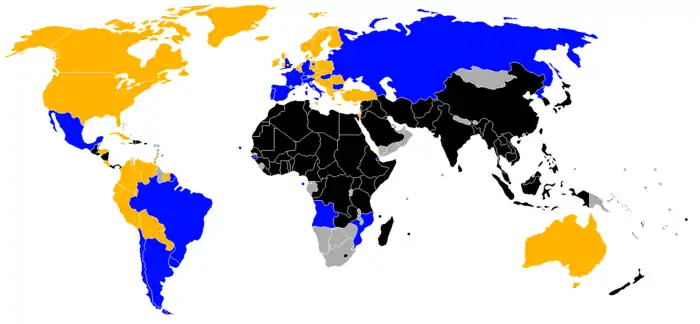
| Team | Method of qualification |
Date of qualification |
Finals appearance |
Streak | Previous best performance |
|---|---|---|---|---|---|
| Hosts | 22 August 1960 | 5th | 5 | Quarter-finals (1954, 1962) | |
| Defending champions | 17 June 1962 | 8th | 8 | Winners (1958, 1962) | |
| CONCACAF final round winners | 16 May 1965 | 6th | 5 | Group stage (1930, 1950, 1954, 1958, 1962) | |
| CONMEBOL Group 1 winners | 13 June 1965 | 5th | 2 | Winners (1930, 1950) | |
| CONMEBOL Group 3 winners | 22 August 1965 | 5th | 3 | Runners-up (1930) | |
| UEFA Group 6 winners | 9 October 1965 | 6th | 4 | Runners-up (1938, 1954) | |
| CONMEBOL Group 2 winners[lower-alpha 1] | 12 October 1965 | 4th | 2 | Third place (1962) | |
| UEFA Group 7 winners | 17 October 1965 | 3rd | 3 | Quarter-finals (1958, 1962) | |
| UEFA Group 4 winners | 31 October 1965 | 1st | 1 | – | |
| UEFA Group 3 winners | 6 November 1965 | 6th | 1 | Third place (1958) | |
| UEFA Group 9 winners[lower-alpha 1] | 10 November 1965 | 4th | 2 | Fourth place (1950) | |
| UEFA Group 2 winners | 14 November 1965 | 6th | 4 | Winners (1954) | |
| Asia / Oceania first round winners [lower-alpha 2] | 24 November 1965 | 1st | 1 | – | |
| UEFA Group 5 winners | 24 November 1965 | 6th | 2 | Quarter-finals (1934, 1938, 1954) | |
| UEFA Group 8 winners | 7 December 1965 | 6th | 2 | Winners (1934, 1938) | |
| UEFA Group 1 winners[lower-alpha 1] | 29 December 1965 | 2nd | 2 | Group stage (1962) |
Qualification process
The 16 spots available in the 1966 World Cup were distributed among the continental zones as follows:
- Europe (UEFA): 10 places, 1 of them went to automatic qualifier England, while the other 9 places were contested by 32 teams (including Israel and Syria).
- South America (CONMEBOL): 4 places, 1 of them went to automatic qualifier Brazil, while the other 3 places were contested by 9 teams.
- North, Central America and Caribbean (CONCACAF): 1 place, contested by 10 teams.
- Africa and Asia (CAF/AFC): 1 place, contested by 19 teams (including Australia from Oceania).
UEFA, CONMEBOL and CONCACAF had a guaranteed number of places, whereas the CAF and AFC had to contest a play-off to determine which confederation would be represented.
After the first round of 1966 FIFA World Cup finals, the percentage of teams from each confederation that passed through to the Quarter-finals was as follows:[2]
- AFC (Asia): 100% (1 of 1 places)
- CAF (Africa): n/a (0 of 0 places)
- CONCACAF (North, Central American and Caribbean): 0% (0 of 1 places)
- CONMEBOL (South America): 50% (2 of 4 places)
- Oceania (No confederation): n/a (0 of 0 places)
- UEFA (Europe): 50% (5 of 10 places)
Summary of qualification
 | ||||||||
| Confederation | Teams started | Teams that secured qualification | Teams that were eliminated | Total places in finals | Qualifying start date | Qualifying end date | ||
|---|---|---|---|---|---|---|---|---|
| AFC, CAF and Oceania | 21 | 1 | 20 | 1 | 21 November 1965 | 24 November 1965 | ||
| CONCACAF | 10 | 1 | 9 | 1 | 16 January 1965 | 22 May 1965 | ||
| CONMEBOL | 9+1 | 3+1 | 6 | 3+1 | 16 May 1965 | 12 October 1965 | ||
| UEFA[lower-alpha 1] | 32+1 | 9+1 | 23 | 9+1 | 24 May 1964 | 29 December 1965 | ||
| Total | 72+2 | 14+2 | 58 | 14+2 | 24 May 1964 | 29 December 1965 | ||
Tiebreakers
For FIFA World Cup qualifying stages using a league format, the method used for separating teams level on points was the same for all Confederations. If teams were even on points at the end of group play, the tied teams played a play-off at a neutral ground.
Confederation qualification
AFC, CAF and Oceania
21 teams – Australia, three teams from AFC and 17 teams from CAF – applied to take part in qualification, but the entries of Congo-Brazzaville and the Philippines were rejected.
South Africa, who had been expelled from CAF in 1958 due to the country's apartheid policies,[3][1] were placed with the Asian and Oceanian teams.[1] Also, Australia were not a member of a confederation at the time (the OFC was not founded until 1966).
The qualification process began with four national teams split between two sections for qualification: Israel and Syria competed in European qualification for geographical reasons, whilst North Korea and South Korea were to take part in a group alongside Australia and South Africa. The winner of this group would then go on to play the three group winners from the second round of CAF qualifiers.
However, South Africa was disqualified after being suspended by FIFA, and all 15 members of CAF withdrew in protest after FIFA declined to allocate them a direct qualifying place. Less than three weeks before the tournament, South Korea were forced to withdraw due to logistical difficulties after the tournament was moved from Japan to Cambodia.[1][4]
| Pos | Team | Pld | W | D | L | GF | GA | GD | Pts |
|---|---|---|---|---|---|---|---|---|---|
| 1 | 2 | 2 | 0 | 0 | 9 | 2 | +7 | 4 | |
| 2 | 2 | 0 | 0 | 2 | 2 | 9 | −7 | 0 | |
| — | 0 | – | – | – | – | – | — | 0 | |
| — | 0 | – | – | – | – | – | — | 0 |
(D) Disqualified; (W) Withdrew
African boycott
Qualification for the 15 remaining African teams saw them sorted into six groups: three groups of two and three groups of three.
The winners of these groups were then to play a two-legged tie in the following combinations: Group 1 winners v Group 5 winners, Group 2 winners v Group 4 winners and Group 3 winners v Group 6 winners, with the winners advancing to play in the final group with each other and the winner of the Asia/Oceania group.[3][1][4]
However, these African nations were aggrieved that their second-round winners would be required to enter a final round against the winners of the Asia/Oceania group in order to qualify for the final tournament. These nations demanded that Africa be represented in the tournament, and also objected to the readmission of South Africa to FIFA.
Due to pressure from the African nations and CAF, South Africa was suspended again on 21 September 1964, and were subsequently disqualified. However, after FIFA declined to change the qualifying format or the allocation of places, citing competitive and logistical issues, all fifteen African teams immediately withdrew in protest: subsequently, CAF informed FIFA that they would refuse to participate in qualifying for 1970 unless at least one African team had an automatic place in the World Cup.
In 1968, FIFA unanimously voted to grant an automatic place for CAF from the 1970 World Cup onwards.[3]
CONCACAF
10 teams initially entered, but the entry of Guatemala was rejected.[1]
The remaining nine teams were placed in to three groups of three, with the winner of each group proceeding to a final group. The winner of this group would go on to the final tournament.[5]
| Legend |
|---|
| Country that directly qualified for the 1966 World Cup |
| Team | Pld | W | D | L | GF | GA | GD | Pts |
|---|---|---|---|---|---|---|---|---|
| 4 | 3 | 1 | 0 | 12 | 2 | +10 | 7 | |
| 4 | 1 | 2 | 1 | 8 | 2 | +6 | 4 | |
| 4 | 0 | 1 | 3 | 3 | 19 | −16 | 1 |
CONMEBOL
As Brazil has already qualified as reigning champions, the remaining nine CONMEBOL teams were split into three groups of 3, playing each other twice (home and away). The top team from each group qualified.[6]
| Legend |
|---|
| Countries that directly qualified for the 1966 World Cup |
| Countries that took part in a group play-off |
Final positions (group stage)
Group 1
|
Group 2
|
Group 3
|
In Group B, Chile and Ecuador finished level on points, and a play-off on neutral ground was played to decide who would qualify. Chile won the match to win the group.
UEFA
England qualified automatically as hosts and a further 30 European teams took part in qualification. They were joined by Israel and Syria, although Syria then withdrew in support of the African teams. The teams were divided into 9 groups - four groups of 3 and five groups of 4. Syria's withdrawal meant that group 9 only contained two teams.[7]
| Legend |
|---|
| Countries that directly qualified for the 1966 World Cup |
| Countries that took part in a group play-off |
Final positions (group stage)
Group 1
|
Group 2
|
Group 3
| ||||||||||||||||||||||||||||||||||||||||||||||||||||||||||||||||||||||||||||||||||||||||||||||||||
Group 4
|
Group 5
|
Group 6
| ||||||||||||||||||||||||||||||||||||||||||||||||||||||||||||||||||||||||||||||||||||||||||||||||||
Group 7
|
Group 8
|
Group 9
| ||||||||||||||||||||||||||||||||||||||||||||||||||||||||||||||||||||||||||||||||||||||||||||||||||
In Group 1, Belgium and Bulgaria finished level on points, and a play-off on neutral ground was played to decide who would qualify. Bulgaria won the match 2–1.
In Group 9, the Republic of Ireland and Spain finished level on points, and a play-off on neutral ground was played to decide who would qualify. Spain won the match 1–0.
Goalscorers
- 7 goals
- 6 goals
- 5 goals
- 4 goals
- 3 goals
 Luis Artime
Luis Artime Ermindo Onega
Ermindo Onega.svg.png.webp) Johnny Thio
Johnny Thio Alberto Fouilloux
Alberto Fouilloux Leonel Sánchez
Leonel Sánchez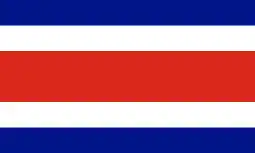 Edgar Marín
Edgar Marín William Quirós
William Quirós Karol Jokl
Karol Jokl.svg.png.webp) Enrique Raymondi
Enrique Raymondi Juhani Peltonen
Juhani Peltonen.svg.png.webp) Nestor Combin
Nestor Combin.svg.png.webp) Philippe Gondet
Philippe Gondet.svg.png.webp) Giorgos Sideris
Giorgos Sideris Paolo Barison
Paolo Barison Lascelles Dunkley
Lascelles Dunkley Louis Pilot
Louis Pilot.svg.png.webp) Pak Seung-Zin
Pak Seung-Zin Pedro Pablo León
Pedro Pablo León Jerzy Sadek
Jerzy Sadek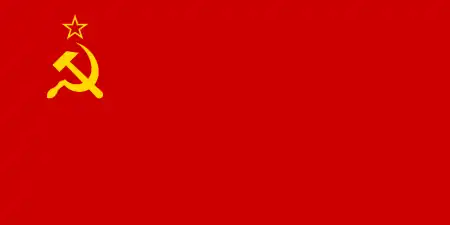 Valentin Kozmich Ivanov
Valentin Kozmich Ivanov Slava Metreveli
Slava Metreveli.svg.png.webp) Chus Pereda
Chus Pereda.svg.png.webp) Siegfried Haltman
Siegfried Haltman.svg.png.webp) Köbi Kuhn
Köbi Kuhn Ivor Allchurch
Ivor Allchurch Rudolf Brunnenmeier
Rudolf Brunnenmeier
- 2 goals
 Raúl Bernao
Raúl Bernao.svg.png.webp) Les Scheinflug
Les Scheinflug Carlos Campos Sánchez
Carlos Campos Sánchez Rubén Marcos
Rubén Marcos Eugenio Méndez
Eugenio Méndez Ignacio Prieto
Ignacio Prieto Antonio Rada
Antonio Rada Hermenegildo Segrera
Hermenegildo Segrera Ivan Mráz
Ivan Mráz Ole Fritsen
Ole Fritsen Ole Madsen
Ole Madsen Peter Ducke
Peter Ducke Jürgen Nöldner
Jürgen Nöldner.svg.png.webp) Alberto Pedro Spencer
Alberto Pedro Spencer János Farkas
János Farkas Máté Fenyvesi
Máté Fenyvesi Giacinto Facchetti
Giacinto Facchetti Bruno Mora
Bruno Mora Gianni Rivera
Gianni Rivera.svg.png.webp) José Luis González Dávila
José Luis González Dávila.svg.png.webp) Javier Fragoso
Javier Fragoso.svg.png.webp) Aarón Padilla Gutiérrez
Aarón Padilla Gutiérrez.svg.png.webp) Salvador Reyes Monteón
Salvador Reyes Monteón Hennie van Nee
Hennie van Nee.svg.png.webp) Virgilio Sille
Virgilio Sille.svg.png.webp) Han Bong-Zin
Han Bong-Zin.svg.png.webp) Kim Seung-Il
Kim Seung-Il.svg.png.webp) George Best
George Best Harald Berg
Harald Berg Erik Johansen
Erik Johansen Luis Zavalla
Luis Zavalla Ernest Pol
Ernest Pol.svg.png.webp) Nicolae Georgescu
Nicolae Georgescu.svg.png.webp) Viorel Mateianu
Viorel Mateianu John Greig
John Greig Denis Law
Denis Law Vladimir Barkaya
Vladimir Barkaya.svg.png.webp) Stanley Humbert Krenten
Stanley Humbert Krenten.svg.png.webp) Edmund Waterval
Edmund Waterval Lars Granström
Lars Granström Bo Larsson
Bo Larsson Agne Simonsson
Agne Simonsson Torbjörn Jonsson
Torbjörn Jonsson.svg.png.webp) René-Pierre Quentin
René-Pierre Quentin Andy Aleong
Andy Aleong Fevzi Zemzem
Fevzi Zemzem Ed Murphy
Ed Murphy Werner Krämer
Werner Krämer Wolfgang Overath
Wolfgang Overath Klaus-Dieter Sieloff
Klaus-Dieter Sieloff.svg.png.webp) Dragan Džajić
Dragan Džajić
- 1 goal
.svg.png.webp) Mexhit Haxhiu
Mexhit Haxhiu.svg.png.webp) Robert Jashari
Robert Jashari Erich Hof
Erich Hof.svg.png.webp) Armand Jurion
Armand Jurion.svg.png.webp) Wilfried Puis
Wilfried Puis.svg.png.webp) Jacques Stockman
Jacques Stockman.svg.png.webp) Fortunato Castillo
Fortunato Castillo.svg.png.webp) Ramón Quevedo
Ramón Quevedo.svg.png.webp) Rolando Vargas
Rolando Vargas.svg.png.webp) Stoyan Kitov
Stoyan Kitov.svg.png.webp) Ivan Petkov Kolev
Ivan Petkov Kolev Fernando Jiménez
Fernando Jiménez Tarcisio Rodríguez Viquez
Tarcisio Rodríguez Viquez Juan González Soto
Juan González Soto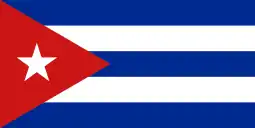 Nicolás Martínez
Nicolás Martínez Ángel Piedra
Ángel Piedra Antonio dos Santos
Antonio dos Santos Alexander Horváth
Alexander Horváth Dušan Kabát
Dušan Kabát Andrej Kvašňák
Andrej Kvašňák Mogens Berg
Mogens Berg Kaj Poulsen
Kaj Poulsen Tommy Troelsen
Tommy Troelsen Eberhard Vogel
Eberhard Vogel.svg.png.webp) Romulo Gómez
Romulo Gómez.svg.png.webp) Washington Muñoz
Washington Muñoz Martti Hyvärinen
Martti Hyvärinen Semi Nuoranen
Semi Nuoranen.svg.png.webp) Marcel Artelesa
Marcel Artelesa.svg.png.webp) André Guy
André Guy.svg.png.webp) Angel Rambert
Angel Rambert.svg.png.webp) Andreas Papaemmanouil
Andreas Papaemmanouil.svg.png.webp) José Ricardo Taylor
José Ricardo Taylor Ferenc Bene
Ferenc Bene Kálmán Mészöly
Kálmán Mészöly Dezső Novák
Dezső Novák Gyula Rákosi
Gyula Rákosi Andy McEvoy
Andy McEvoy Rahamim Talbi
Rahamim Talbi Giacomo Bulgarelli
Giacomo Bulgarelli Ezio Pascutti
Ezio Pascutti Syd Bartlett
Syd Bartlett Oscar Black
Oscar Black Patrick Blair
Patrick Blair Art Welch
Art Welch Asher Welch
Asher Welch Ernest Brenner
Ernest Brenner Edy Dublin
Edy Dublin Ady Schmit
Ady Schmit.svg.png.webp) José Luis Aussin
José Luis Aussin.svg.png.webp) Ignacio Jáuregui
Ignacio Jáuregui.svg.png.webp) Ramiro Navarro
Ramiro Navarro Frans Geurtsen
Frans Geurtsen Theo Laseroms
Theo Laseroms Bennie Muller
Bennie Muller Daan Schrijvers
Daan Schrijvers.svg.png.webp) Im Seung-Hwi
Im Seung-Hwi.svg.png.webp) Pak Doo-Ik
Pak Doo-Ik.svg.png.webp) Willie Irvine
Willie Irvine.svg.png.webp) Terry Neill
Terry Neill Per Kristoffersen
Per Kristoffersen Olav Nilsen
Olav Nilsen Arne Pedersen
Arne Pedersen Finn Seemann
Finn Seemann Kai Sjøberg
Kai Sjøberg Ole Stavrum
Ole Stavrum.svg.png.webp) Celino Mora
Celino Mora.svg.png.webp) Vicente Rodríguez
Vicente Rodríguez.svg.png.webp) Juan Carlos Rojas
Juan Carlos Rojas Nemesio Mosquera
Nemesio Mosquera Jesús Peláez Miranda
Jesús Peláez Miranda Víctor Zegarra
Víctor Zegarra Roman Lentner
Roman Lentner Mário Coluna
Mário Coluna Jaime Graça
Jaime Graça.svg.png.webp) Sorin Avram
Sorin Avram.svg.png.webp) Alexandru Badea
Alexandru Badea.svg.png.webp) Dan Coe
Dan Coe.svg.png.webp) Carol Creiniceanu
Carol Creiniceanu.svg.png.webp) Ion Pârcălab
Ion Pârcălab Stevie Chalmers
Stevie Chalmers Dave Gibson
Dave Gibson Billy McNeill
Billy McNeill Davie Wilson
Davie Wilson Boris Kazakov
Boris Kazakov Galimzyan Khusainov
Galimzyan Khusainov Mikheil Meskhi
Mikheil Meskhi Yozhef Sabo
Yozhef Sabo Valery Voronin
Valery Voronin.svg.png.webp) Carlos Lapetra
Carlos Lapetra.svg.png.webp) José Ufarte
José Ufarte.svg.png.webp) Kenneth Kluivert
Kenneth Kluivert Kurt Hamrin
Kurt Hamrin Ove Kindvall
Ove Kindvall.svg.png.webp) Anton Allemann
Anton Allemann.svg.png.webp) Robert Hosp
Robert Hosp Alvin Corneal
Alvin Corneal Jeff Gellineau
Jeff Gellineau Bobby Sookram
Bobby Sookram Ayhan Elmastaşoğlu
Ayhan Elmastaşoğlu Nedim Doğan
Nedim Doğan Helmut Bicek
Helmut Bicek Walt Schmotolocha
Walt Schmotolocha Danilo Menezes
Danilo Menezes José Urruzmendi
José Urruzmendi.svg.png.webp) Freddy Elie
Freddy Elie.svg.png.webp) Rafael Santana
Rafael Santana.svg.png.webp) Humberto Francisco Scovino
Humberto Francisco Scovino.svg.png.webp) Argenis Tortolero
Argenis Tortolero Ron Davies
Ron Davies Wyn Davies
Wyn Davies Mike England
Mike England Ronnie Rees
Ronnie Rees Alfred Heiß
Alfred Heiß Uwe Seeler
Uwe Seeler Heinz Strehl
Heinz Strehl Horst Szymaniak
Horst Szymaniak.svg.png.webp) Dražan Jerković
Dražan Jerković.svg.png.webp) Vladica Kovačević
Vladica Kovačević.svg.png.webp) Džemaludin Mušović
Džemaludin Mušović.svg.png.webp) Velibor Vasović
Velibor Vasović
- 1 own goal
 José Ramos Delgado (playing against Bolivia)
José Ramos Delgado (playing against Bolivia).svg.png.webp) Ivan Vutsov (playing against Belgium)
Ivan Vutsov (playing against Belgium)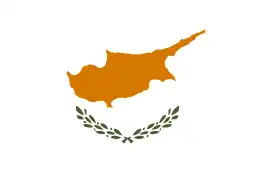 Kostas Panayiotou (playing against West Germany)
Kostas Panayiotou (playing against West Germany) Stig Holmqvist (playing against Italy)
Stig Holmqvist (playing against Italy).svg.png.webp) Ricardo González (playing against Argentina)
Ricardo González (playing against Argentina).svg.png.webp) José Ángel Iribar (playing against Ireland)
José Ángel Iribar (playing against Ireland) Graham Williams (playing against the Soviet Union)
Graham Williams (playing against the Soviet Union)
References
- 1 2 3 4 5 6 7 "History of the FIFA World Cup Preliminary Competition (by year)" (PDF). FIFA.com. 27 July 2007. Archived from the original (PDF) on 17 July 2011. Retrieved 9 October 2017.
- ↑ "1966 FIFA World Cup England". FIFA.com. Retrieved 9 October 2017.
- 1 2 3 "How Africa boycotted the 1966 World Cup". BBC News. 11 July 2016. Retrieved 8 October 2017.
- 1 2 "Miscellaneous Qualifiers for the World Cup 1966". Score Shelf. Archived from the original on 12 July 2016. Retrieved 9 October 2017.
- ↑ "CONCACAF Qualifiers for the World Cup 1966". Score Shelf. Archived from the original on 13 July 2016. Retrieved 9 October 2017.
- ↑ "CONMEBOL Qualifiers for the World Cup 1966". Score Shelf. Archived from the original on 12 July 2016. Retrieved 9 October 2017.
- ↑ "UEFA Qualifiers for the World Cup 1966". Score Shelf. Archived from the original on 18 August 2016. Retrieved 9 October 2017.